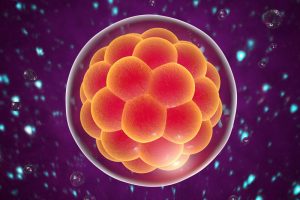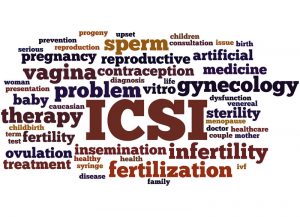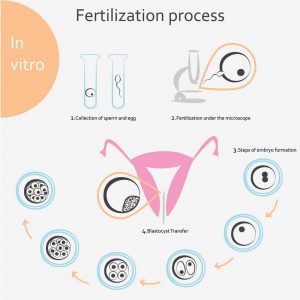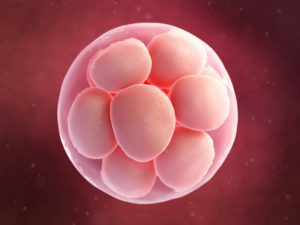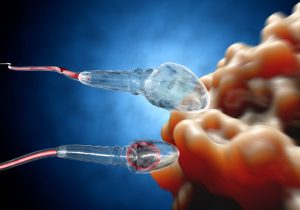In Vitro Fertilization
What is IUI
What is IUI
If you are someone experiencing infertility issues and are planning to find different conception methods, you most likely have seen the term IUI but do not really know just what it really is yet. Your first question probably was what is IUI? To put it simply, IUI or Intrauterine Insemination is a type of assisted conception where your doctor will place a washed and selected sperm right into your uterus that is also close to your egg during the period of ovulation. The Intrauterine Insemination is also a procedure that is at times, combined with a variety of chosen fertility medications that work to boost your chances of getting pregnant. If the thorough definition of what is IUI is not enough, continue reading to learn more about the Intrauterine Insemination process, how it works for treating infertility, its risks, and a lot more.
What is IUI as an Infertility Treatment
The procedure can be utilized to treat a variety of fertility problems and for males, the Intrauterine Insemination is often utilized if they have an extremely low sperm count or if they have sperm that is not able to swim through the cervix and all the way up to your fallopian tube.
For you and other women, the Intrauterine Insemination is usually done when you have a specific condition such as endometriosis, or if you have any present abnormalities in your reproductive organs. This specific procedure may also be appropriate for you if you have a condition called the unreceptive cervical mucus the time when the mucus that envelops your cervix blocks the sperm from entering your uterus and tubes. Furthermore, artificial insemination allows the sperm to entirely avoid the cervical mucus. Additionally, doctors usually suggest the process of artificial insemination when they cannot really determine you and your partners infertility problems. This explanation better and thoroughly answers your question what is IUI; so now, we can look at what to expect during the whole procedure of IUI.
What to Expect During Intrauterine Insemination
Now that you have a clearer idea of what is IUI, you should now know and have an idea of what to actually expect during the whole Intrauterine Insemination procedure. Here, your doctor or healthcare specialist will make use of things such as an ovulation kit, blood tests, and even ultrasounds to ensure that you are actually ovulating when you proceed with the process of IUI. After this, your partner will be requested to provide a sample of his semen so it is highly suggestible for him to avoid having intercourse for about two to five days before the actual procedure to make sure that his sperm count is adequate and high enough for the procedure. If you and your partner are living close to your doctors clinic, it may be possible for your partner to collect his semen sample right in your home; if this is not possible, he can do this in a private area. The reason for this is that the sperm should actually be washed in a lab in just about an hour of ejaculation.
When it comes to washing your partners sperm in the laboratory, chemicals are being extracted from their semen which may cause you some discomfort; also, washing is done to increase your chances of getting pregnant. What technicians do in a lab is they liquefy a sperm for thirty minutes at room temperature before infusing a harmless chemical to separate and determine which the most active sperm is. During this process, the technicians make use of a centrifuge tool to collect and gather the best sperm that is present. These chosen sperm are set in a catheter so that the doctor can send the semen through your vagina, cervix, then into the uterus.
Generally, an artificial insemination is quick and somewhat painless so a lot of women who have undergone this procedure describe it as something that is similar to a pap smear; however, you should keep in mind that during the infertility treatment, it is possible for you to experience cramping, then after the procedure, you can also experience light bleeding. Also after the procedure, your doctor may request that you lie down for a couple more minutes to allow the sperm to work efficiently. After about forty-five minutes have passed, you will be allowed to get back to your regular tasks and activities; in some instances before the Intrauterine Insemination procedure, the doctor may set you on medications for infertility treatment like Clomid or clomiphene citrate which helps you ovulate a multiple number of eggs.
Remember that the success rates of artificial insemination differ for every patient; some of the reasons why others chances are lower compared to other women include the following:
1. They are slightly older than forty years.
2. Poor quality of egg or sperm is present.
3. An extreme cause of endometriosis is present.
4. There is a lot of damage to the tubes which is usually due to long-term infections.
5. Fallopian tube blockages this is when the Intrauterine Insemination procedure will not work at all.
Can IUI Really Help?
Generally, IUI is supposed to be a procedure that is painless and straightforward yet it is actually no longer recommended by doctors as a first option infertility treatment; however, the procedure may assist you and your partner if:
1. You and your partner consider it difficult to have intercourse due to reasons such as disability, injuries, or psychosexual problems.
2. You require additional assistance to conceive if ever your partner has a sexually transmitted infection that is viral and requires thorough sperm washing to better protect you as well as your potential baby from the infection.
3. If you are in a same-sex relationship and wish to make use of a donated sperm to conceive.
Some fertility issues like low sperm count, unexplained infertility, poor-quality sperm, and mild endometriosis can be treated with the help of Intrauterine Insemination; however, this procedure is no longer recommended for these issues since its success rates were no better compared to getting pregnant naturally.
Empower Fertility

Support for Couples Through Fertility Treatment

How to Choose the Best Fertility Doctor

How to Deal with Stress during Treatment

How to Boost Your Self-esteem During Treatment

How to Experience Happiness and Calm During Pregnancy

How to Nurture your Relationship During Fertility Treatment

Methods of Coping During Fertility Treatment









